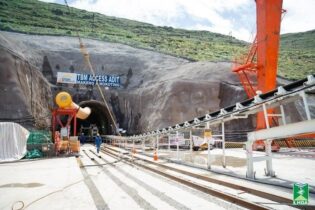ESI Africa reports that biogas digesters have been installed in the Upper Thukela area in KwaZulu-Natal as part of a natural resource management project to enhance the quality of life of people living there. Most of the residents of the area are very poor and spent a large portion of their income on energy needs, including wood.
The biogas digesters use cattle dung as the raw material and the methane-rich gas that is produced through the anaerobic digestion, provides much-need energy. Biogas has many benefits, also in small scale operations in rural Africa. There are benefits to the rural populations of the continent and furthermore, the technology fulfils all the criteria relating to environmental sustainability, requiring relatively low technological input and being cost effective to implement.Although biogas is used all over the world (India for instance has more than 12 million digesters), biogas in South Africa is less well-known. ESI states that less than 100, mostly small-scale domestic installations, have successfully been built and commissioned to date locally.
The BiogasPro, the first small digester to achieve certification from the South African Pipeline Gas Association and that installed in the Upper Thukela area, is a patented system that is engineered, designed and manufactured in South Africa for African conditions. The unit has a total capacity of 6 000 litres and can produce a nominal amount of 1.9 cubic metres of biogas every day, which is equivalent to four hours burning time on a single gas plate, 0.8kg LPG, or 3.5 kWh continuous electrical output. The biogas is captured and stored within the upper part of the digester itself, which has a gas storage capacity of 0.95 cubic metres, and relies on hydraulic pressure to produce gas pressure at 7.0 kPa when fully primed. www.esi-africa.com/node/15757





